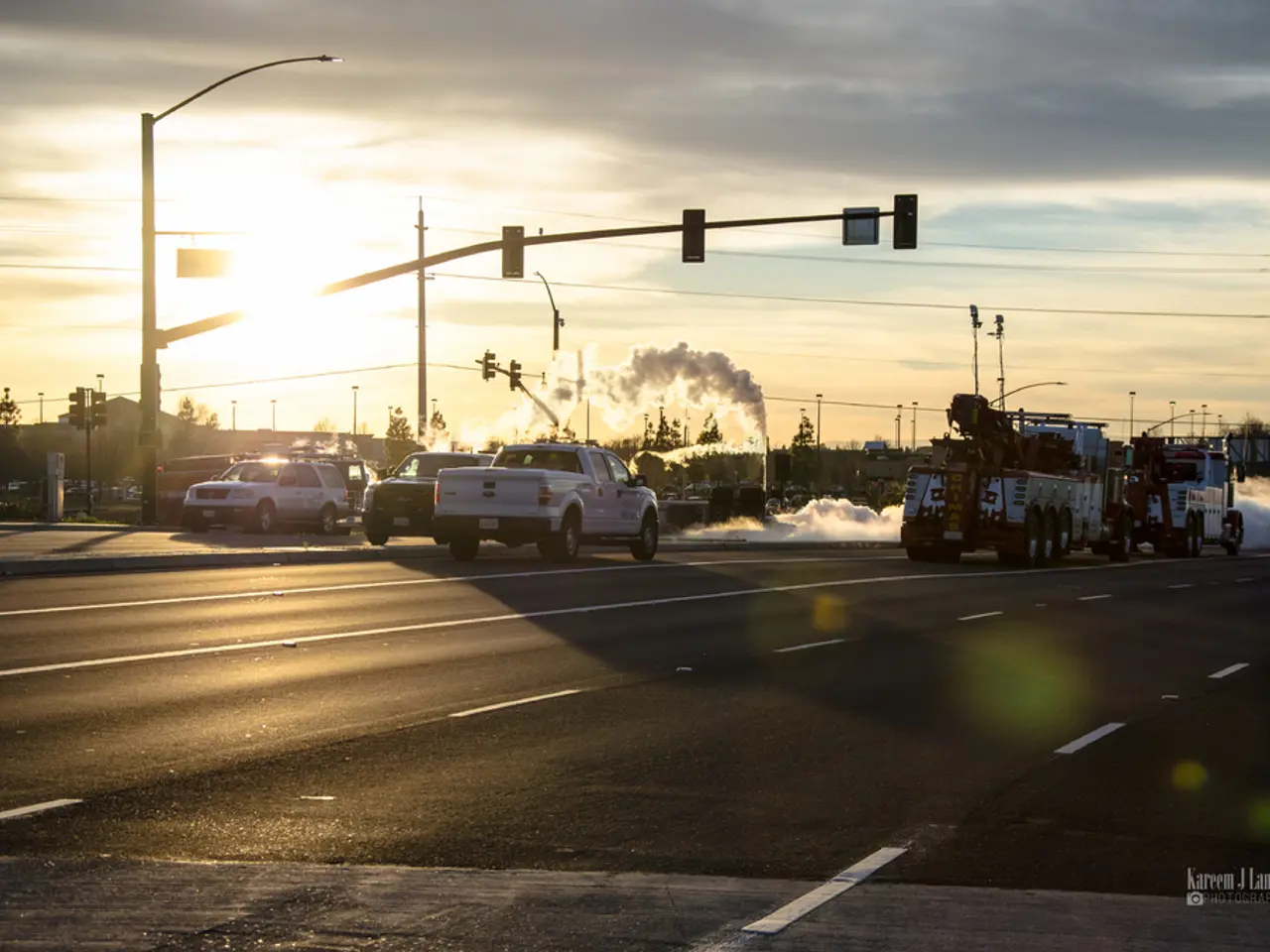Extreme temperatures lead to increased absences due to illness
In the sweltering heat of summer, the Southwest branch of the Innungskrankenkasse (IKK Southwest) is grappling with an alarming trend - a significant increase in heat-related sick notes among its insured members. This rise, particularly noticeable in outdoor and physically demanding professions such as craft trades and courier services, is a telling sign of the impact of climate change on worker health.
Professor Jörg Loth, head of IKK Southwest, has issued a stark warning about the growing influence of heat waves on the world of work. By mid-July 2025, IKK Southwest had registered 514 certificates of incapacity for work (AU) with heat-related diagnoses, nearly as many as in the entire heat summer of 2022 (551 AU).
Heat illnesses, including sunstroke, heatstroke, and circulatory problems, can have serious consequences, impairing the work ability and productivity of many businesses. Chronically ill people and older employees are particularly vulnerable, with the current numbers showing these groups accounting for a significant portion of heat-related sick notes.
Construction workers, craftsmen in civil, building, and mechanical engineering, and courier service employees are among those most affected by the rising tide of heat-related illnesses. The relatively mild summer of 2024 saw only 396 heat-related sick notes recorded by IKK Southwest, underscoring the recent spike.
IKK Südwest health advisor Marina Tremmel recommends several simple yet effective measures to combat heat-related illnesses. These include making water easily accessible, ritualizing drinking habits, and offering watermelon and cucumber frequently in the summer to stay hydrated. Additionally, the approach of "nudging," which involves designing the environment to unconsciously make healthier choices, is recommended for staying hydrated.
As extreme heat events become more frequent and intense, workers in these occupations face greater health risks that lead to illness-related absences. The economic and social consequences are far-reaching, with heat stress disrupting work output in affected professions, potentially causing more sick notes not only from actual illness but also precautionary absences to avoid health risks.
While specific data on heat-related sick notes for craft and courier professions was not found in the search results, the broader evidence on heat impacts on outdoor and physical workplaces, coupled with rising heat-related illness statistics and economic disruption, strongly supports that climate change is increasing heat stress in these worker groups, leading to more heat-related sick notes.
IKK Southwest warns that longer and more pronounced heat waves in summer mean more sick notes. As we navigate the challenging years ahead, it is crucial to prioritise worker health and safety, ensuring that our workplaces are as heat-resilient as possible.
- Professor Jörg Loth, realizing the impact of climate change on worker health, emphasizes the growing significance of heat waves in the realm of science, environmental-science, and health-and-wellness, particularly in relation to fitness-and-exercise and nutrition.
- As environmental-science and climate-change continue to shape the landscape of southwestern Germany, IKK Südwest health advisor Marina Tremmel suggests preventive measures in the field of health-and-wellness, such as water accessibility, regular hydration habits, and incorporating cooling foods like watermelon and cucumber, to mitigate heat-related illnesses.
- With rising temperatures and heat waves becoming more frequent due to climate change, it is essential for industries such as construction, craft trades, courier services, and others that require physical labor to focus on the aspect of health-and-wellness and climate-change, ensuring workplaces are resilient and safe for their employees, preventing an increase in heat-related sick notes.




